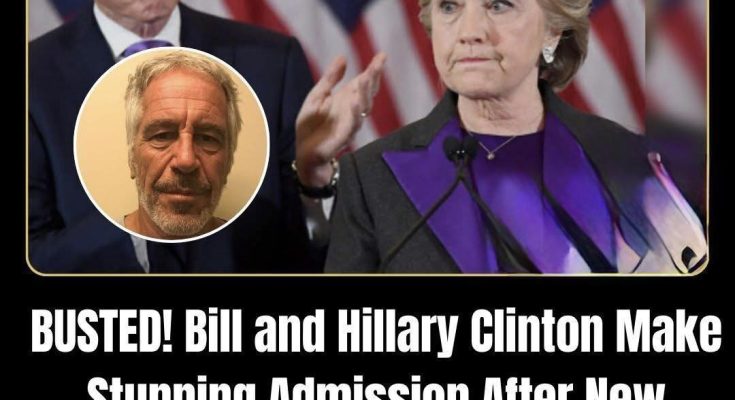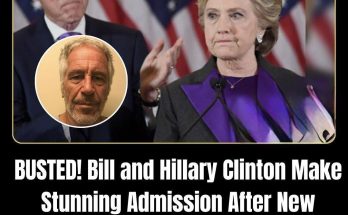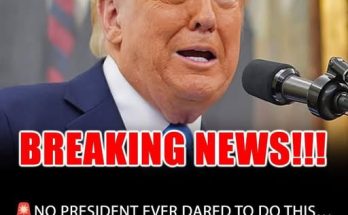The connection between Jeffrey Epstein and some of thmost recognizable political figures of the past several decades is once again in the national spotlight. House Oversight Committee Chairman James Comer (R-Ky.) has taken a major step in expanding his committee’s investigation into the disgraced financier, formally ordering former President Bill Clinton and former Secretary of State Hillary Clinton to appear for in-person depositions next month.
The decision marks a significant escalation in a probe that has already involved subpoenas, attorney responses, and heated debate over the scope of congressional oversight. By insisting on live testimony — rather than accepting written statements — Comer has signaled that the committee wants answers directly from the Clintons themselves, not filtered through attorneys or limited to carefully crafted summaries.
Background: Subpoenas, Written Responses, and a Standoff
Comer first issued subpoenas to both Bill and Hillary Clinton back in August, seeking information about their interactions with Jeffrey Epstein and Ghislaine Maxwell. The Clintons have long acknowledged crossing paths with Epstein socially, though they have denied any involvement in his criminal activities. Questions linger regardless, and Comer’s investigation aims to determine what connections existed, how extensive they were, and whether they bear relevance to congressional oversight.
Earlier this month, the Clintons’ attorney responded to the subpoenas by offering what he described as a “written proffer of what little information” the pair possesses. The letter emphasized that the Clintons’ contacts with Epstein were minimal and insisted that any in-person testimony would be unnecessary and outside the legitimate focus of congressional interest.
Comer rejected that framing entirely.
In a sharp reply, he said that the attorney’s letter “amounts to a request that the Committee abandon in-person testimony that could be relevant to its legislative purpose.” He pointed out that the lawyer had already acknowledged that the Clintons do, in fact, possess some information — and that alone warrants direct questioning.
Moreover, Comer noted that the committee is specifically interested in the Clintons’ non-official interactions with Epstein, not their government duties. The fact that their known meetings with Epstein happened while they were acting as private citizens, he argued, makes them even more relevant to the probe.
Why the House Oversight Committee Wants Their Testimony
The committee’s investigation into Jeffrey Epstein is broad and ongoing, with lawmakers reviewing everything from his social network to the failures of the criminal justice system that allowed him to operate for years with minimal consequences. The deaths of both Epstein and Maxwell’s close confidantes, unexplained gaps in official documentation, and persistent public speculation have only intensified congressional interest.
According to Comer, the Clintons remain central figures in the probe due to:
- Bill Clinton’s several documented flights aboard Epstein’s private jet
- Hillary Clinton’s interactions with individuals in Epstein’s circle
- Visits Epstein made to the Clinton White House during the 1990s
- Photographs, schedules, and social records that place Epstein and the Clintons in proximity over a period of years
Comer argues that Congress has both the authority and obligation to investigate why prominent individuals maintained connections with Epstein, and whether the Justice Department or other federal institutions acted appropriately in handling complaints against him.
The Oversight Committee views these depositions as part of a broader effort to strengthen transparency and examine potential corruption — a theme Comer has repeatedly emphasized during his tenure as chairman.
Scheduled Testimony Dates
The committee has formally set back-to-back deposition dates:
- Bill Clinton is scheduled to testify on December 17 at 10 a.m.
- Hillary Clinton will appear the following day, December 18 at 10 a.m.
Holding the depositions on consecutive days suggests that investigators want to focus tightly on any overlapping information the two may provide, while also examining their individual recollections and roles separately.
Committee staffers have already begun preparing the questioning structure, which is expected to include inquiries about:
- Social meetings with Epstein
- Travel arrangements and guest lists
- Communications between the Clintons and Epstein or Maxwell
- Any fundraising events involving Epstein’s network
- Knowledge of Epstein’s criminal activities or allegations
A senior committee aide stated that the panel intends to “establish a full, unfiltered record of the relationships involved.”
Could the Clintons Invoke Executive Privilege?
Several legal experts have suggested that the former president and secretary of state could attempt to avoid testimony by invoking executive privilege or related doctrines. While executive privilege typically protects communications made as part of official duties, the limits of that protection become much less clear when the topic concerns private activities unrelated to federal service.
Legal scholars observing the case note that:
- A former president can assert executive privilege, but it can be challenged or overridden
- Activities not connected to governmental decision-making generally fall outside privilege protections
- Congress has substantial authority to compel testimony if it demonstrates a legitimate legislative purpose
- Attempting to use privilege for personal, non-official interactions could be seen as inappropriate or ineffective
Whether the Clintons choose to pursue such a strategy remains unknown, but analysts believe that, if invoked, privilege claims would likely lead to extended legal battles — and potentially elevate the inquiry into an even larger public spectacle.
A Significant Moment in a Long-Running Story
The Epstein saga has spanned decades, nations, and numerous high-profile individuals. While many public figures encountered Epstein through philanthropy, politics, academia, or social networks, the secrecy surrounding his operations and clientele has fueled intense speculation. Epstein’s death in federal custody in 2019 only intensified public suspicion and calls for full disclosure.
Comer’s decision to compel testimony from two of the most recognizable political figures in modern American history marks one of the boldest moves yet in the congressional investigation. Supporters argue it is long overdue and necessary for transparency. Critics, however, claim it risks becoming a politically charged spectacle.
Regardless of perspective, the committee’s latest actions guarantee that the Epstein inquiry — already one of the most controversial and high-profile investigations in recent memory — will dominate headlines again as the December depositions approach.
With legal maneuvers, public pressure, and bipartisan scrutiny all converging, the stage is set for one of the most consequential moments in the search for answers about Epstein’s network and the influential people within orbit.


